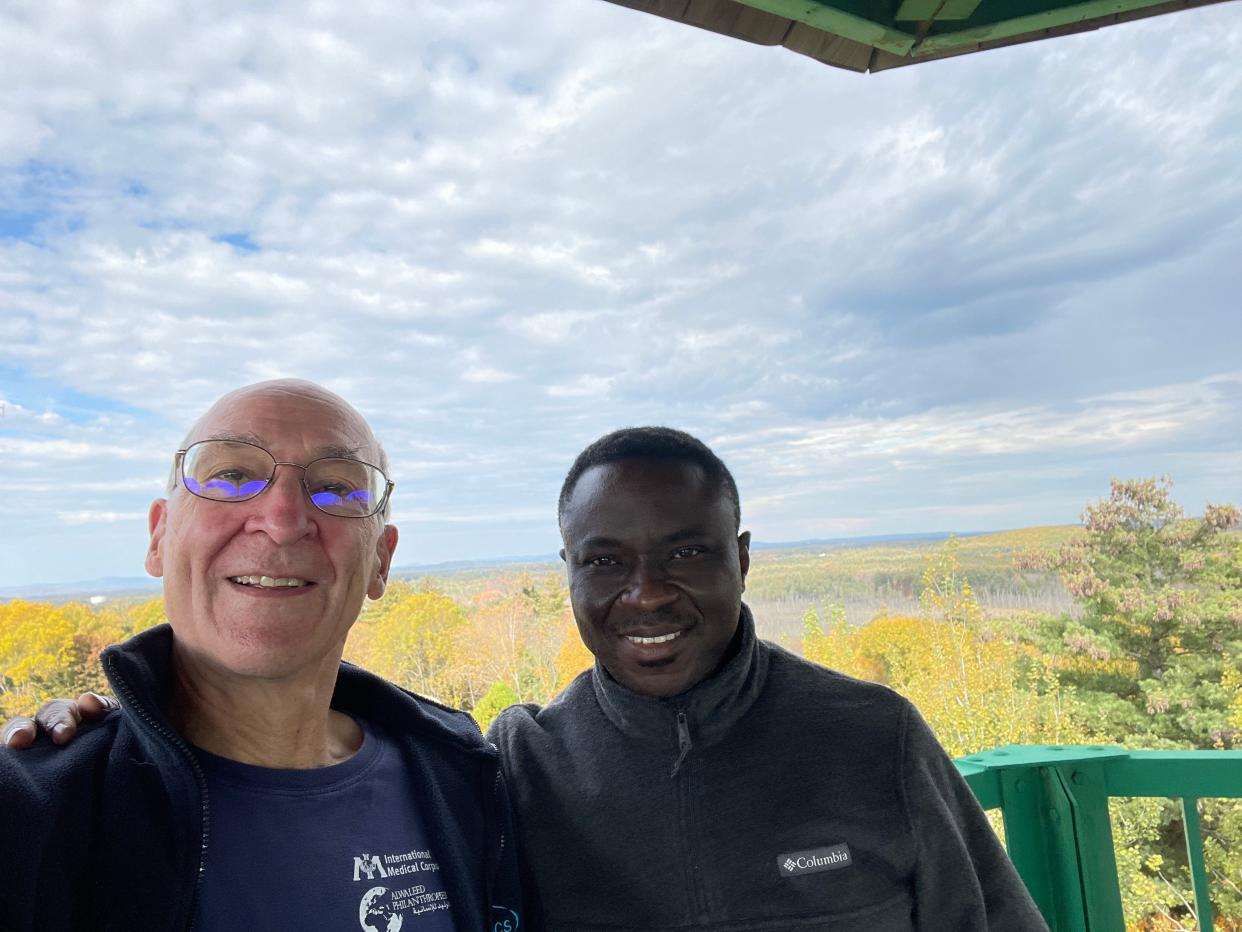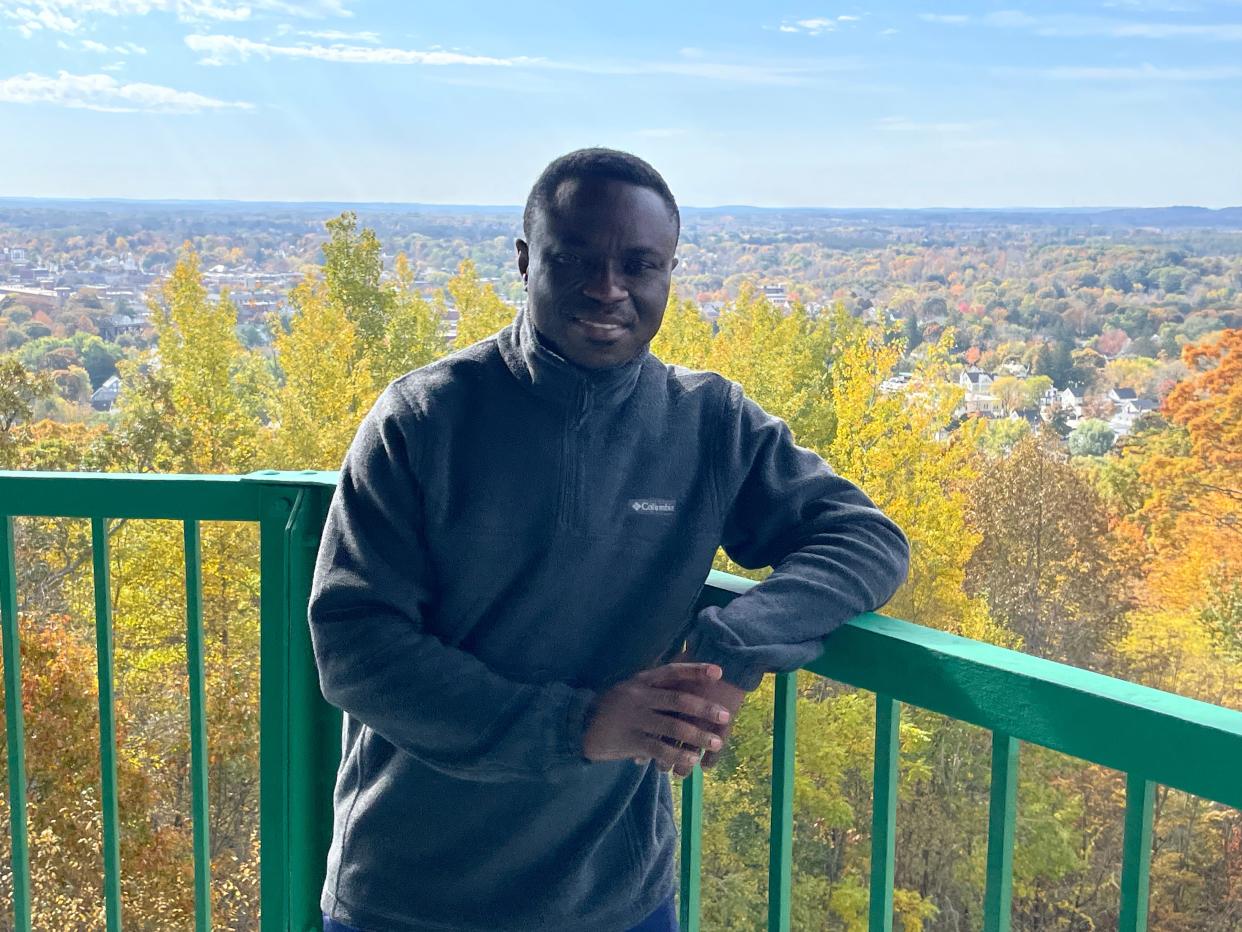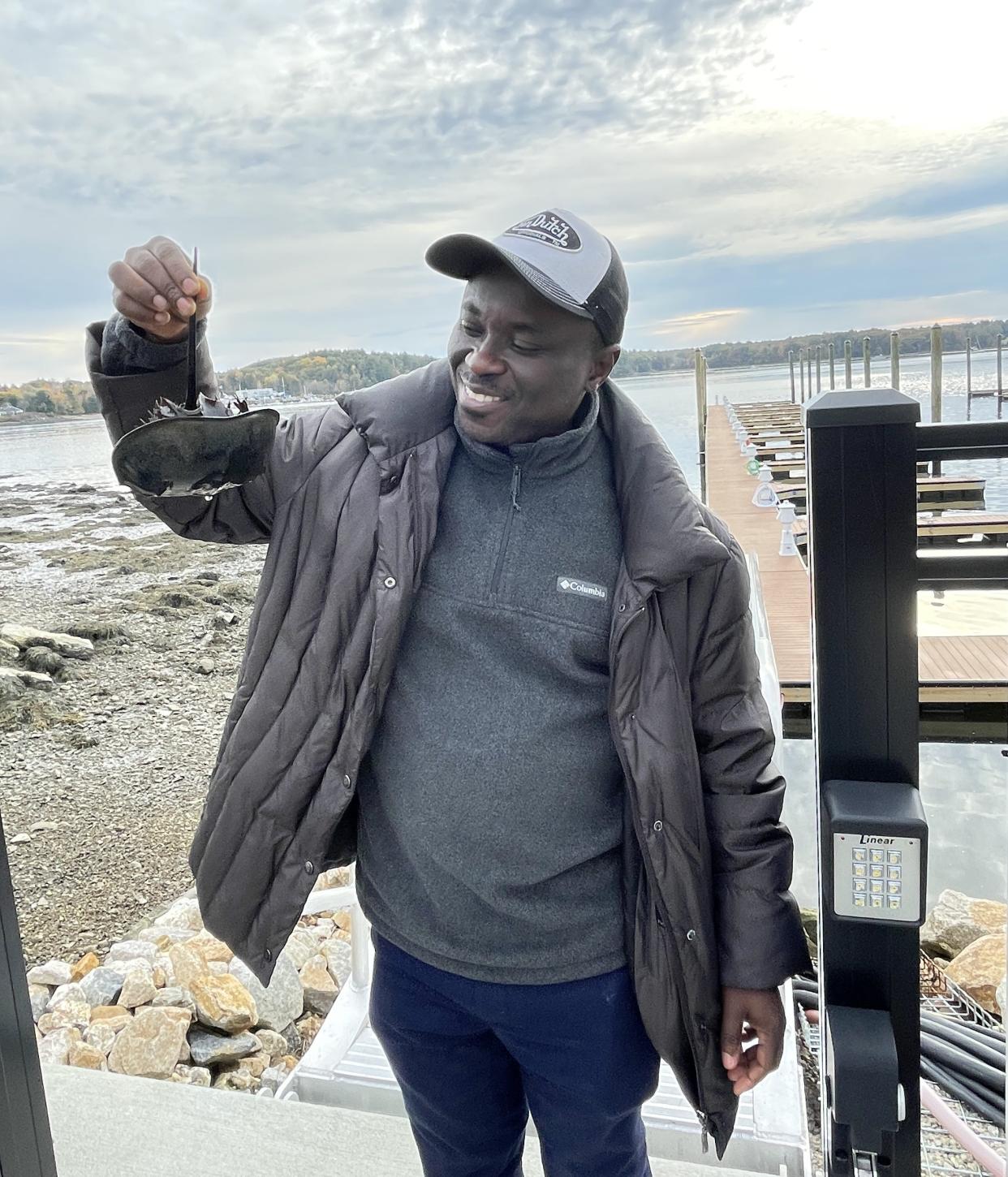Wentworth-Douglass Hospital surgeon gives back through Health Volunteers Overseas
DOVER — For more than 25 years, Dr. Charles Blitzer, an orthopedic surgeon at Wentworth Health Partners Seacoast Orthopedics & Sports Medicine, has been involved with Health Volunteers Overseas.
Giving back comes naturally to Blitzer, and he enjoys sharing his medical expertise far beyond the Seacoast communities serviced by Wentworth-Douglass.
Health Volunteers Overseas has physicians from North America work alongside local care teams in the developing world in more of a visiting professor role to consult on cases and teach.
Blitzer has completed medical missions in Micronesia, Bhutan, Malawi, Mongolia, Zimbabwe, Costa Rica, and Ghana.
During his time in Ghana, Blitzer met Dr. Dominic Konadu-Yeboah, senior specialist and head of the Department of Trauma and Orthopaedics at Komfo Anokye Teaching Hospital in Kumasi, Ghana.

Blitzer said he enjoys his trips with Health Volunteers Overseas because their approach allows people to develop a rapport with the local clinicians while becoming immersed in the culture and traditions of other parts of the world.
One of Konadu-Yeboah’s primary goals in learning from Blitzer and other clinicians is to reduce the suffering of people with fractures, diminish disability, and save the lives of people who die from preventable diseases.
If injuries are not treated quickly, Konadu-Yeboah said it forces patients to take time away from physically demanding jobs in a country where traditionally men are the primary earners. Time away from work because of a fracture, he said, means patients are not able to earn their usual income to support their families.
And, because of the distance required to travel to a hospital, many of the injuries that Konadu-Yeboah and his team see are long bone fractures and can be infected with tetanus, which is lethal.
Blitzer and Konadu-Yeboah were recently reunited at the Orthopaedic Trauma Association annual meeting in Seattle.
Every year the organization sponsors humanitarian scholars from developing nations to attend and Konadu-Yeboah was selected this year.
Konadu-Yeboah was honored for his research paper focused on a training program for traditional bonesetters. In many developing countries, including Ghana, bonesetters are on the frontlines of caring for fractures. Konadu-Yeboah and his colleagues established formal training for traditional bonesetters, which included sharing knowledge of fracture basics and treatment.

After the annual meeting, Konadu-Yeboah flew from Seattle to Boston and spent a week at Wentworth-Douglass, learning beside Blitzer and his colleagues.
Konadu-Yeboah said he enjoyed his time in New Hampshire and learned a great deal. He says visiting with Blitzer and his colleagues has opened his eyes to new ways of doing things in the future and expanded his scope of knowledge, which he will share with the team he leads at Komfo Anokye Teaching Hospital in Kumasi, Ghana.

Blitzer said he has learned something on every trip with Health Volunteers Overseas, and it has been an eye-opening experience.
“Far too many Americans do not understand what life is like in other parts of the world,” he said. “When things are frustrating in our daily lives, it would serve us all better to think about what life is like for most people on this planet. You can be any place on this globe within about 24 hours, and to not pay attention to what life is like for most people in the world is a big shortcoming. There are small things we can do to potentially make other people’s lives better, and if we do those things, the whole planet can be better. It is a small world.”
This article originally appeared on Portsmouth Herald: Wentworth-Douglass surgeon gives back through Health Volunteers Overseas
